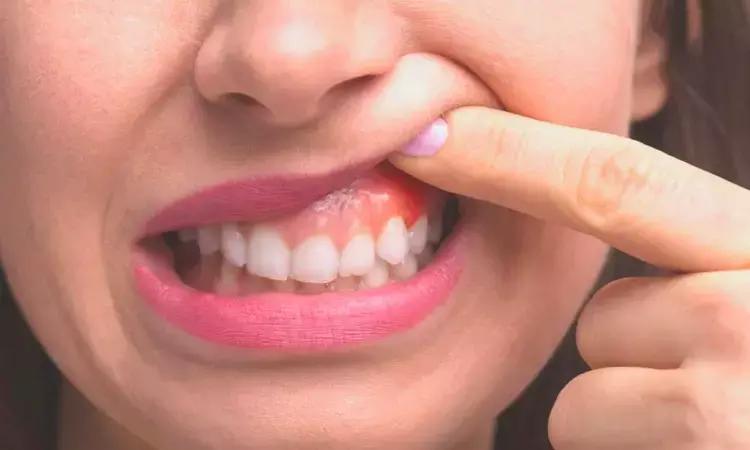Spain: Periodontitis and Subclinical Atherosclerosis in Elderly Hypertension Patients
Periodontitis in elderly hypertension patients is associated with subclinical atherosclerosis in both carotid and intracranial arteries, a recent study published in Clinical Oral Investigations has shown.
The association between periodontitis and intracranial atherosclerosis indicates that patients with periodontitis might have a greater chance of developing ischemic stroke in the future.
Until now, research on the periodontitis-stroke association has focused on clinical cerebrovascular events, but the potential link of periodontitis with cerebral atherosclerosis' subclinical measures has not been investigated. The priori hypothesis was that periodontitis would be linked with increased pulsatility (PI) and resistance index (RI), thus providing evidence of periodontitis's involvement in developing early atherosclerotic vascular changes in the cerebral arteries.
Considering this, for the first time, María Vázquez-Reza and colleagues from Spain aimed to test the association between periodontitis and subclinical intracranial atherosclerosis in high-vascular-risk patients in a cross-sectional study. In addition, they also assessed the association of periodontitis with subclinical atherosclerosis signs in other vascular territories.
The study included 97 elderly subjects with a previous hypertension history. They received an ultrasonographic evaluation to evaluate subclinical atherosclerosis in various vascular territories:
- Cerebral [pulsatility and resistance index of the middle cerebral artery]
- Peripheral [ABI (ankle-brachial index)]
- Carotid [intima-media thickness]
Participants underwent a blood sample collection and full-mouth periodontal assessment to determine inflammatory biomarkers levels (fibrinogen, leukocytes, and an erythrocyte sedimentation rate), glucose, and lipid fractions (high and low-density lipoprotein and total cholesterol).
Findings
- Sixty-one individuals had periodontitis. Those with periodontitis showed higher values of RI (0.70 ± 0.14 vs 0.60 ± 0.06), PI (1.24 ± 0.29 vs 1.01 ± 0.16), and IMT (0.94 ± 0.15 vs 0.79 ± 0.15) compared to subjects without periodontitis.
- No statistically significant differences were found for ABI or other biochemical and clinical parameters.
- The authors found an independent association between periodontitis and increased intracranial atherosclerosis (ORadjusted = 10.16) and with thicker carotid IMT (ORadjusted = 4.10), to a lesser extent.
"Findings from the present study indicate that periodontitis may contribute to subclinical atherosclerosis of both carotid and intracranial arteries," the researchers wrote. "We did not find an association between periodontitis and reduced ankle-brachial index, although a tendency was seen towards increased odds of lower ABI in patients with periodontitis."
"The association of periodontitis with intracranial atherosclerosis indicates that periodontitis patients might have greater chances of developing ischemic stroke in the future," they concluded.
Reference
Vázquez-Reza, M., López-Dequidt, I., Ouro, A. et al. Periodontitis is associated with subclinical cerebral and carotid atherosclerosis in hypertensive patients: A cross-sectional study. Clin Oral Invest (2023). https://doi.org/10.1007/s00784-023-04958-8



0 Comments
Post a comment
No comments yet. Be the first to comment!